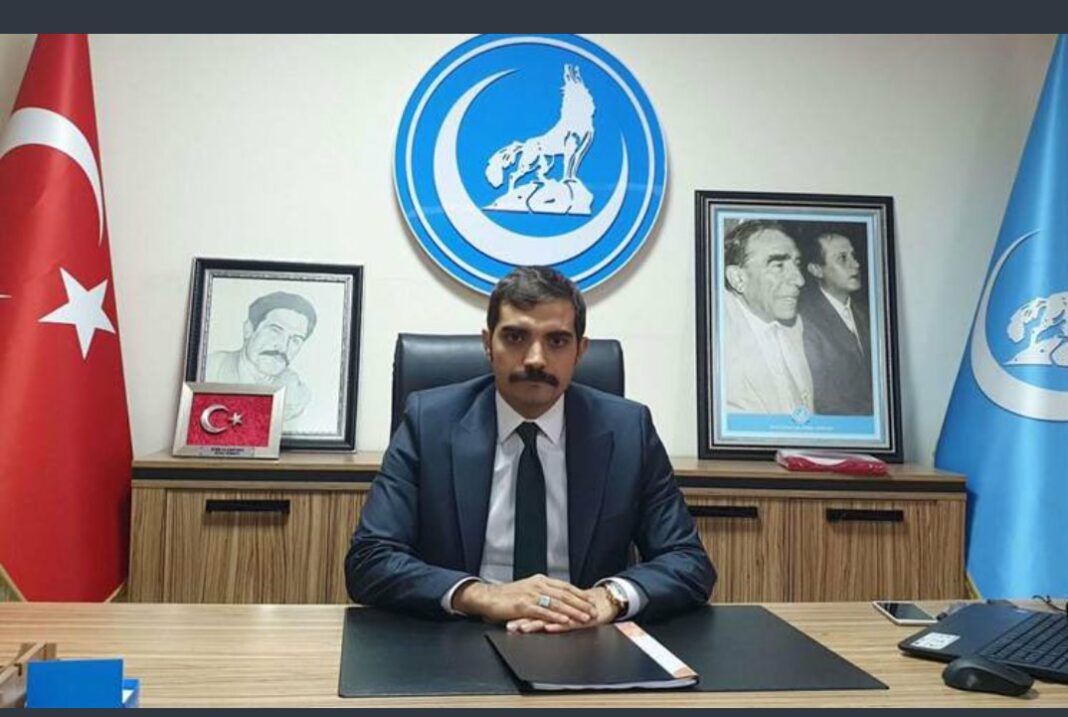The trial concerning the murder of former Grey Wolves leader Sinan Ateş has been adjourned until September 30, fueling accusations from his widow that the authorities are orchestrating a coverup to protect the true perpetrators.
Former Grey Wolves leader Sinan Ateş (38) was fatally shot in Ankara on December 30, 2022. His murder in broad daylight sent shockwaves across the country, sparking a debate about the power struggles within the country’s nationalists.
During the sixth hearing of the trial on Friday, the prosecution submitted its final opinion, leading to harsh criticism from Ateş’s family and their legal representatives.
The Ankara Public Prosecutor’s Office requested that the cases of lawyer Serdar Öktem, who is affiliated with the Nationalist Movement Party (MHP), and police chief Mustafa Ensar Aykal be separated from the main trial. They face charges of “aiding premeditated murder,” with Aykal additionally accused of “unlawfully obtaining and disseminating personal data.” The prosecutor cited the need for more time to investigate their mobile phone data, which requires international cooperation to unlock encrypted information from a US-based company.
Journalist Alican Uludağ, following the trial closely, commented that this move might be part of a strategy to exonerate Öktem, suggesting a plan to protect him.
Sinan Ateş’s widow, Ayşe Ateş, criticized the trial’s conduct, accusing authorities of attempting to close the case quickly to shield political figures allegedly involved in the crime. “We are up against a judicial process fighting to cover up the political motivation [of the murder],” she said, emphasizing that the murder was politically motivated.
At the fourth hearing of the trial on July 4, Ateş accused MHP lawmakers İzzet Ulvi Yönter and Semih Yalçın of orchestrating her husband’s murder, saying that her husband had mentioned their names as the ones who ordered his killing.
Despite the Ateş family’s claims, the prosecution stuck to the initial indictment and did not expand the case to include additional suspects. The prosecutor called for heavy penalties for the principal defendants: the alleged hitman Eray Özyağcı and accomplices Vedat Balkaya and Suat Kurt, who are charged with “premeditated murder” and face aggravated life sentences. They are also accused of the attempted murder of Sinan Ateş’s relative and bodyguard, Selman Bozkurt, with potential additional sentences ranging from 13 to 20 years. Özyağcı also faces charges of possessing an unlicensed firearm.
The prosecution sought the acquittal of three individuals: Mehmet Yüce, who sold the motorcycle used in the murder; Erdem Karadeniz, the owner of the hotel where suspect Doğukan Çep was captured; and Osman Bayraktar, who rented the car used by the suspects. Meanwhile, 11 other defendants were accused of aiding the murder, with recommended sentences of 15 to 20 years.
Ayşe Ateş has urged the establishment of a parliamentary inquiry committee to ensure transparency and justice, warning that failure to fully investigate the political connections could lead to further political assassinations. She expressed grave concern about the safety and privacy of individuals, citing instances of personal data being misused by the authorities.
The court denied requests for the release of the 12 currently detained defendants and upheld travel bans for 10 defendants who are being tried without pretrial detention. The next hearing is scheduled for September 30, when the court will continue to review the prosecution’s requests and the defense’s arguments.
This case is being followed by the opposition particularly closely due to the suspects’ political affiliations and the historical importance of the Grey Wolves as an unofficial paramilitary wing of the MHP. Their ideology is mainly based on Turkish nationalism. Therefore, Kurds, Armenians and other minorities in Turkey have occasionally been their targets.
In 2020 France officially banned the Grey Wolves after a center dedicated to the memory of those who died in the mass killings of Armenians during World War I was defaced with graffiti, including the name of the Grey Wolves.
The German government has faced an intensified public campaign in favor of banning the Turkish nationalist group since then.
In 2021 the European Parliament called on the European Union and its member states to examine the possibility of adding the Grey Wolves to the EU terrorist list.
In its 2019-2020 report prepared by Turkey rapporteur Nacho Sanchez Amor, the EP voiced concerns about the group, saying it was expanding to worrying levels not only in Turkey but also in EU countries.



